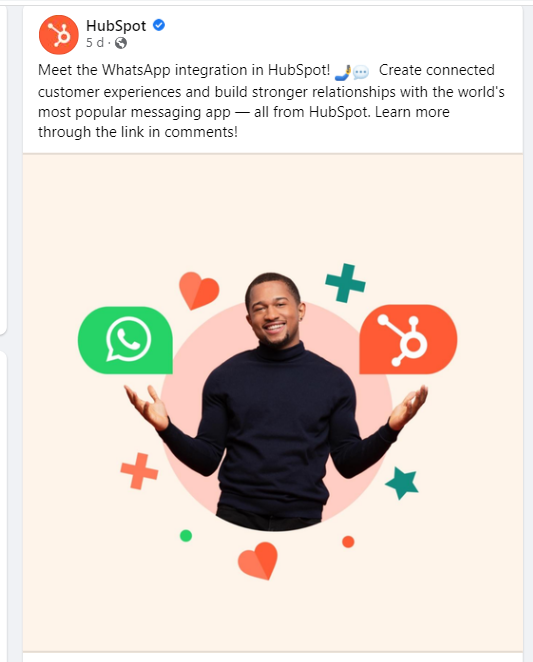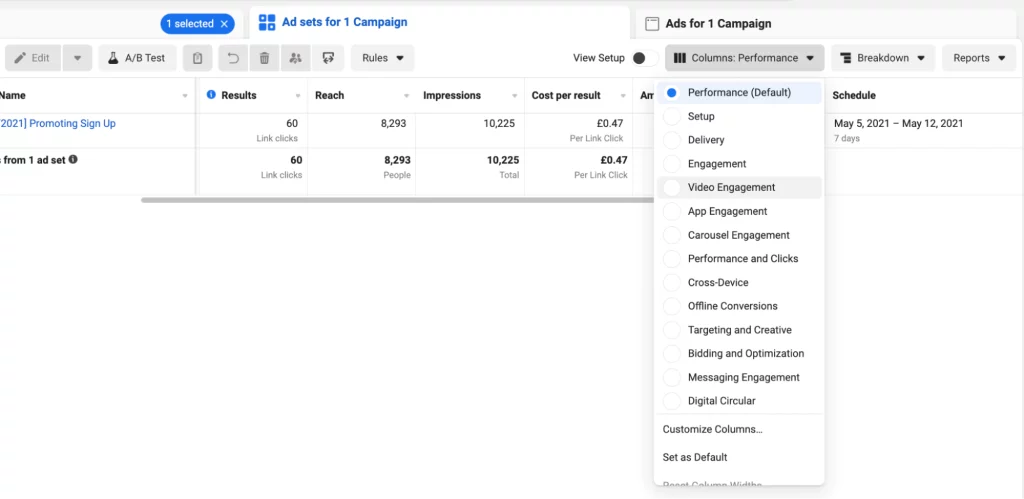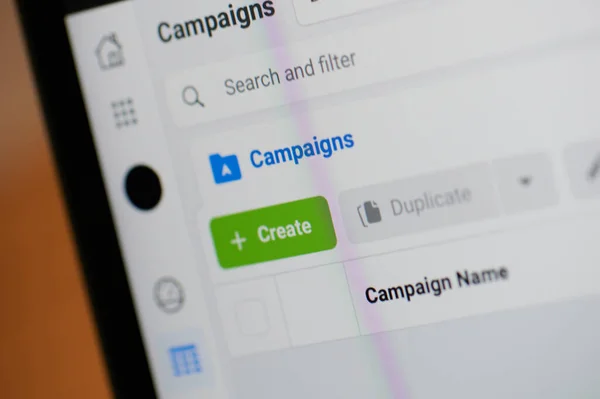ECommerce is short for electronic commerce. It refers to individuals and businesses that transact by selling goods and services on the internet. ECommerce functions over different market segments and can occur on personal computers (PCs), tablets, and smartphones.
Nowadays, almost all products and services are available via eCommerce, including plane tickets, music, books, financial services, and more, which means the value of electronic commerce is rapidly increasing and expanding into all possible areas of the online world. There are various forms of eCommerce, which are Business-to-Business (B2B), Business-to-Consumer (B2C), Consumer-to-Business, and Consumer-to-Consumer (C2C).
The importance of electronic commerce and having the ability to make all types of sales and purchases via online channels is more evident than ever before, which is why businesses should strive to have as many options as possible for people to find and buy their products with ease. This is where Facebook comes in.
According to Pew Research[1], about 69 percent of American adults use Facebook, and 70 percent claim to be on the platform daily. This type of user traffic is exactly what makes it an efficient platform for eCommerce, but it is not the only reason. If you are exploring your eCommerce options, keep reading to find out exactly why we believe Facebook could be of great help to you!
Why Facebook is Good For Marketing
Let’s begin with this basic first step. As one of the top social networks, we know that Facebook has tools that efficiently cater to businesses that want to form authentic customer relationships. It also allows marketing experts to create and distribute quality content for users. In marketing, Facebook can be an efficient tool for sales reps to connect with consumers interested in a specific brand.
The first aspect that makes Facebook an efficient marketing and eCommerce tool is its ability to reach a wide audience. It also offers advertisers one of the biggest user bases compared to other platforms.
Apart from Facebook having a large audience, it spans large demographics, which means most brands can easily find the desired audience for their eCommerce business.
Let’s take a deeper look into what makes Facebook a great platform for marketing:
Alignment with B2C and B2B Businesses
Facebook is an efficient platform for both B2B and B2C businesses. According to Meta, business decision-makers spend 74 percent more time on Facebook than other individuals[2]. Since the B2B space is also very competitive, most marketers leverage Facebook aggressively. With the right targeting, there’s always an opportunity for marketing success.
Regarding targeting, Facebook provides various targeting segments that align with B2B needs. These segments include job title, employer name, employment industry, and interest industry.
Audience transparencyCompared to other platforms, we believe Facebook’s audience targeting is significantly transparent, making it great for eCommerce. Every business will have considerable control and transparency over the audience on Facebook.
At Nomadic Advertising, our years of experience have allowed us to conclude that the self-selection process for ad targeting on Facebook is simple, it involves analyzing fans, friends of fans, and other individuals’ behaviors or interests (note that fans are also Facebook followers). On Facebook, marketers can also see what audience segment performs the best to test and refine strategies successfully.
Various available ad formats: Facebook has close to 10 ad formats, which makes it a leading platform based on that category. For every target marketing funnel, there are a number of options with video and image ads commonly utilized. A successful Facebook ads campaign should be able to use the most relevant ad formats for their business and take full advantage of the multiple resources available on the platform to really target the desired audience.

What is eCommerce Facebook?
Now that we have a better understanding of why Facebook is such a useful platform when it comes to marketing, let’s get more specific and analyze its role precisely in relation to eCommerce.
ECommerce Facebook is a segment on the Facebook platform that allows businesses to sell their products on Facebook and Instagram. As a marketer on Facebook, it’s necessary to have a detailed strategy to minimize cost and maximize the impact of the eCommerce Facebook brand. As an overview, we believe that in order for your eCommerce Facebook strategy to thrive, you must: decide which type of social media posts you’ll create (paid vs. organic) to successfully reach your audience, analyze whether Facebook Shop or Marketplace is best for you, and run the appropriate ads to correctly boost your business.
Is Facebook an eCommerce Site?
In order to create the best Facebook eCommerce strategy, you first need to understand the relationship between Facebook and eCommerce.
Facebook as a whole is not an eCommerce site, but Facebook Shops is a platform that allows sales of products on Facebook and Instagram. On the platform, sellers can easily create custom online stores, it’s one of the best ways to do so without knowledge of coding. Marketers can also help remote their items by utilizing features like stories to connect with other customers.
Apart from Facebook Shops, another eCommerce platform under Facebook is the Marketplace. According to research, over one-third of individuals on Facebook in the US utilize Marketplace every month for purchase and sales of items[3].
Organic vs. Paid Social Media
Now that we understand how Facebook and eCommerce are meant to work together, let’s see what type of posts you should create for your eCommerce. Knowing the best types of posts for your business will help you understand your audience and gain followers, which are likely to turn into leads and sales.
To get started, you can ask yourself one simple yet crucial question: should you go with organic or paid social media? By analyzing their characteristics and differences we can come up with the best answer for your particular case.
Organic social media involves creating social media posts that will show up on people’s feeds and using their impact to your advantage. However, these people need to be your followers for the post to really have an effect: if followers share or engage with your post, other individuals will get to see them, creating a ripple effect that will ultimately benefit your brand. Organic social media may help nurture a connection with customers at scale to establish a brand voice, thereby helping you grow and improve your sales.
Paid social media, on the other hand, is a more effective marketing approach for a brand. With this tool, you can minimize your content efforts because there will be no need for you to wait and hope that your followers will share your content and eventually help you grow your numbers. With paid social media, you’ll direct your posts specifically to your target audience. That way, the people who are actively searching for what you have to offer will be able to easily find you and check out your business.
Benefits of paid social media over organic social media
Generally, paid social media allows brands to reach out to more people, nurture better customer satisfaction, and get higher conversions, but those are not the only benefits.
Let’s explore some of the other advantages of paid social media over organic social media:
1. Increased brand awareness
Promoting one’s business on social media platforms like Facebook can increase brand awareness. Before getting leads and conversions, brand awareness exposes the business to thousands to millions of interested individuals.
Paid social media increases brand visibility, which ends up improving conversations and leads. Brand awareness campaigns on Facebook and other social media platforms help generate organic website traffic, which speeds up and improves sales.
Many times, brand awareness is a step towards better brand perception. Unlike brand awareness, brand perception also focuses on how people feel about you. All brand awareness campaigns should have long-term brand perception in mind. In other words, brand awareness campaigns should capitalize on creating good first impressions.
2. Better brand loyalty
Engaging customers through paid social media can help a business develop a strong and loyal customer base. Social media advertising provides the opportunity for small and medium-scale businesses to connect with their target audience to create meaningful connections. One way to go about this is to share customer satisfaction testimonials.
Utilizing remarketing adverts on social media can also help improve brand loyalty by ensuring products remain the focus of customers and website visitors. Better brand loyalty reduces expenditures on customer retention and constant promotion. Many times, individuals who build loyalty to your brand help with word-of-mouth promotion, which is highly reliable.
3. Improved conversion rates
Social media adverts are helpful for businesses to generate higher conversion rates. In Digital 2020, 27% of people surveyed claimed they discovered new brands and products via social media adverts.
On Facebook, there are various ways to boost your conversion rate. Facebook Ads helps marketers devise various detailed audience targeting metrics for ad campaigns. Setting up retargeting social media ad campaigns can grow warm leads and encourage re-engagement with the business.
We advise business owners to remain active on social media platforms like Facebook. In other words, businesses should create engaging posts to drive more traffic and improve conversions.
4. Boost business leads
Specific lead-generation ad campaigns on Facebook can help businesses harness the benefits of social media marketing. Facebook’s messaging adverts and lead-generation ads are great solutions for customer-facing businesses that require more leads.
We here at Nomadic Advertising advise that you consider using lead-generation ads on Facebook to encourage certain events. For example, lead generation ads can help people sign up for an online business, gather customer information, and grow email lists ahead of a product or service launch.
Lead generation helps educate and inform people about your business and increases the scope of word-of-mouth promotion.
5. Cost-effective advertising
When it comes to Facebook advertising or overall social media ads, we understand that the biggest concern of most businesses is the cost implications. Contrary to popular belief, social media ads are cost-effective marketing solutions for businesses.
Most social media ad models function on a pay-per-click (PPC) or pay-per-view (PPV) basis. So, businesses only pay when someone clicks or views the ad. For this reason, businesses can keep advertising at a low cost and only pay when the audience takes action.
Wordstream estimates that the average cost-per-click for Facebook ads is $1.68. With the average cost being low, advertising on Facebook and other platforms can be an efficient method of boosting your online presence and sales.
Organic social media examples
Facebook has about 2.7 billion monthly users, each having different interests and beliefs. Hence, an organic approach to social media may yield a positive result.
For example:
- Shopify: Shopify demonstrates how to use quality to make huge announcements by syncing the visuals to achieve maximum impact. The copy and video texts are effective, simple, and clean because they efficiently blend text and audio together. Shopify also makes use of a tone shift to make the video effective.
- Hubspot: Hubspot often uses a colorful and visually familiar graphic that gives the audience an idea that the post has resources. The copy is often relatable and compelling because it delivers on the promise of an informative resource and timely content.

Paid Social Media Examples
From our research at Nomadic Advertising, we found some paid social media examples. These include:
- Moz: Moz has a bold graphic that captures the target audience’s attention. It has strong and impressive stats which enable the clever targeting of ads to a particular audience or customer lists.
- Adwerx: Adwerx has a seamless and clean design that pops on the feed and draws people’s attention into the middle of the image. It is an ad that has an impressive stat that recognizes when an image is read.
Facebook Shop vs. Marketplace: which is better for eCommerce?
Facebook Shop and Marketplace are both eCommerce-focused features by Facebook. However, each of them holds unique features that make them different.
Facebook Shop got into the eCommerce space by late 2015, and its closest alternative was Facebook Store by Shopify. Facebook Shop allowed sellers to list their products on Facebook and integrate external stores.
For eCommerce, Facebook Shop allows customers to view and purchase products without any hiccups from your Facebook page. It also allows the redirection of customers to your external eCommerce page, if required.
Facebook Marketplace is another term that describes Facebook’s Craigslist as more than an online store. Compared to Facebook Shop, it has little to nothing to do with shopping and serves as a place where users can list products with a price. Facebook Marketplace also deals with both sellers and manufacturers.
Since its inception in 2007, Facebook Marketplace got removed once in 2014. However, Facebook restored the feature in 2017. On Facebook Marketplace, buyers can view their product listing and reach out to the owner for a purchase. Keep in mind that, on the platform, there are no transaction gateways to make payments on the Marketplace.
Choosing between Facebook Shop and Marketplace for your eCommerce
Facebook Shop and Marketplace are great, but each platform differs in specific ways. Facebook Marketplace is not the best for eCommerce because it’s only a listing place to help connect buyers and sellers. It’s impossible for buyers to share reviews on the products they purchase on the Marketplace.
Facebook Shop may be a better choice for small-medium businesses because it helps sellers stand out. On Facebook Shop, buyers can contact the business and leave reviews. Over time, this helps businesses monitor and get valuable product and customer data. Facebook Shop is preferable to Marketplace because it provides better customizability and brand identity.
Facebook ads for eCommerce
Facebook ads for eCommerce are effective and can be utilized for any stage of your sales funnel but remember, running sales-generating Facebook ads for an eCommerce business requires a great strategy.
When creating the strategy, it is vital for Facebook ad campaigns to be optimized according to specific objectives and audiences. Users can utilize the Facebook ads manager when creating ads. For instance, the Facebook ads manager can help integrate one’s product feed for eCommerce.
The following are some of the best Facebook Ads strategies for eCommerce:
1. Make use of Facebook multi-product ads.
There are multi-product ads available for use on Facebook. It gives eCommerce businesses the ability to advertise more than one product in a single ad. You can look to target cold audiences with this strategy.

2. Run several general retargeting campaigns.
Apart from targeting cold audiences, running retargeting campaigns helps increase the chances of returning customers.

3. Use dynamic product ads.
ECommerce sites can use dynamic product ads to gain a high ROI. These ads should resemble user-generated content targeted toward your product catalog.
4. Communicate your brand story using ads.
When businesses communicate their brand story to their audiences, it helps build a relationship with potential customers. We recommend being truthful and transparent in these types of posts, you can use video ads to explain your story or well-designed graphics to be more straightforward with your message.
Key Takeaways
- eCommerce refers to business transactions that involve buying and selling goods or services on the internet.
- Facebook has tools that effectively cater to businesses that want to form good customer relationships.
- Facebook is great for eCommerce marketing because it aligns with B2C and B2B businesses, encourages audience transparency, and offers various available ad formats.
- Facebook ad campaigns need to be optimized based on specific objectives and audiences.
- A great eCommerce Facebook strategy will involve a well-curated paid social media campaign, a solid Facebook Shopify profile, and optimized Facebook Ads to adequately reach your target audience.
To wrap it up…
ECommerce is the new and modern way for businesses to thrive in the online space and knowing exactly how to work all the available resources to your favour will set your brand apart. Facebook and Facebook ads, specifically, help create brand awareness for eCommerce sites because they get people to click through the ads. It also helps to get people familiarized with your brand, which will be the starting point for them to become customers. All of these are exactly why Facebook is such an effective platform that helps business owners achieve their marketing campaign objectives.
If this blog has helped you understand the relationship between Facebook and eCommerce to the point where you realize you need this in order for your business to thrive, then welcome aboard! Here at Nomadic Advertising, we help support e-Commerce businesses with Facebook ads to promote their brands. We have an extensive range of services that help to improve your brand’s online presence tailored to meet your eCommerce needs.
With our experience in utilizing social networks, we ensure your brand is able to reach its specific campaign objective by increasing leads and driving sales. You can contact us to book your FREE 30-minute consultation in which we’ll discuss exactly what we can do for your brand and learn everything you need to know about our comprehensive services. Together we’ll boost your brand and help you thrive in this new eCommerce world in no time!
References
- Pew Research: https://www.pewresearch.org/internet/fact-sheet/social-media/
- Meta: https://www.facebook.com/business/news/insights/how-much-time-do-business-decision-makers-spend-on-facebook?_rdc=1&_rdr
- https://www.facebook.com/business/m/marketplace-ecommerce





